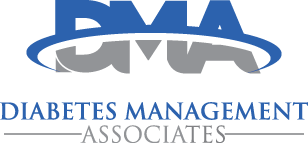The question is often asked of me, ‘should I be drinking milk’. We have been told over and over that dairy is a great source of calcium and we should drink it daily although there is no biological reason in humans to need milk after weaning.
The federal government tells us that milk is a perfect food that Americans should lap up daily, three glasses to be exact—in spite of a large (and growing) body of research showing its lack of benefits and awful side effects. I agree, it is nature’s perfect food…but only if you are a calf!
Cow’s milk from conventionally raised cattle contains dozens of reproductive hormones, allergenic proteins, antibiotics, chemicals, inflammatory compounds, and growth factors. Consuming dairy can lead to weight gain, bloating, acne, gas, allergies, eczema, brittle bones, and sometimes even cancer.
Dr. David Ludwig, reviewed over 100 studies and concluded that milk recommendations for Americans are not based on evidence. See his article in the New England Journal of Medicine, https://www.nejm.org/doi/full/10.1056/NEJMra1903547?query=featured_home.
What about milk and gut health?
Close to 70 percent of the world’s population is genetically unable to properly digest milk and other dairy products—a problem known as lactose intolerance.
What about milk and bone health?
Our bone health is determined by a number of things including what we eat, stress and activity levels, muscle mass, and other factors that contribute to the delicate balance between bone build-up and bone breakdown. According to Dr. Ludwig, even among the young, there is no evidence that milk protects against fractures later in life, and if anything, the opposite may be true.
What about milk and obesity?
Despite widely advertised claims to the contrary, clinical trials show no overall effect of dairy products on lowering body weight or the success of obesity treatment. In studies involving young children, adolescents, or adults, consumption of full-fat milk was associated with less weight gain or a lower risk for obesity compared to the same amount of reduced-fat milk. Reduced fat milk tends to have added sugar.
What about milk and cancer risk?
Milk consumption is linked to prostate cancer in men and endometrial cancer (but probably not breast cancer) in women. In contrast, milk consumption may protect against colorectal cancer. However, as with other studies of associations involving cancer, it can be difficult to prove cause and effect.
If I don’t drink milk, where can I get calcium?
- Sesame seeds, ¼ cup = 351 milligrams
- Sardines with bones, small can = 351 milligrams
- Tofu, 3 ½ ounces: 350 milligrams
- Yogurt, 1 cup: 296 milligrams
- Cow’s milk, 8 ounces 276 milligrams
- Collard greens, 1 cup = 268 milligram
- Spinach, 1 cup = 245 milligram
- Turnip greens, 1 cup = 197 milligram
- Beet greens, 1 cup: 164 milligrams
The takeaway about dairy
- There is no evidence that we need milk to strengthen our bones
- Lactose isn’t the only problem
- We can get adequate levels of calcium from other foods
- A little bit of butter is healthy but needs to be grass fed or ghee
- If you are going to eat dairy, try goat or sheep’s milk
- If you are going to drink milk, choose whole and not low fat. A 22-year study of 3,000 seniors examined the link between dairy intake, heart disease, and death. Individuals who had higher blood levels of saturated fatty acids from dairy had a 42 percent lower risk of death from stroke and no increased heart disease risk.
- Try kefir (fermented cow’s milk)
Live Long, Live Healthy!
Dr. Julie Wood is a Nurse Practitioner and has been serving the Middle Tennessee area for more than 30 years, Dr. Julie Wood is a Nurse Practitioner and has been serving the Middle Tennessee area for more than 30 years, specializing in adults with obesity, prediabetes and diabetes. Office is located at 401 First Avenue, Mt. Pleasant, TN and statewide with telehealth. Dr. Wood can be reached at 931-325-5560, www.diabetesmgtassociates.com, info@diabetesmgtassociates.com.
Articles are meant to be informative and should never replace the advice of your health care provider.
3/14/22
